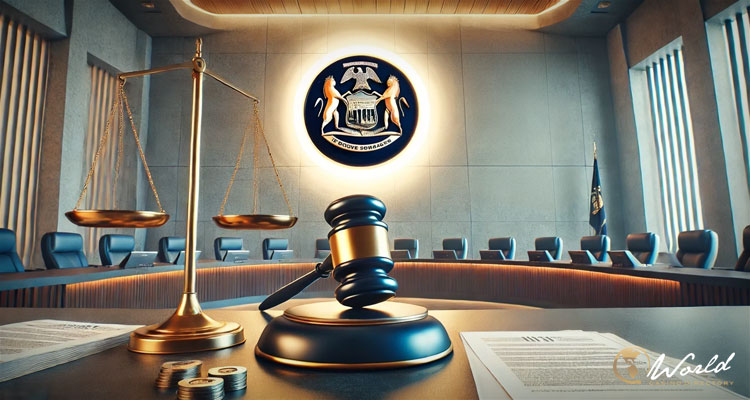The Michigan Gaming Control Board (MGCB) has issued a summary suspension order against TwinSpires, the popular horse racing and casino platform, for continuing to engage in illegal advance deposit wagering (ADW) activities in the state. This suspension follows TwinSpires’ non-compliance with a formal directive to cease its operations for Michigan residents, which had been issued by the MGCB in December 2024. The issue stems from a failure to meet statutory requirements as outlined in Michigan’s gaming laws and the Horse Racing Law of 1995.
Violation of Michigan’s horse racing laws:
According to state law, ADW and simulcast wagering are strictly regulated and can only be legally offered when linked to a licensed racetrack that conducts live horse racing. Currently, Michigan has no licensed tracks authorized to conduct live horse races, making any ADW activities unlawful. For such operations to be permitted, a racetrack must first secure approval from the MGCB.
Until such a license is obtained, the MGCB has ordered that all ADW operations cease. This directive was made clear in a notification to all licensed ADW providers, which includes Xpressbet, NYRAbets, TVG Network, and TwinSpires. While three of the four companies quickly adhered to the order, TwinSpires chose to continue offering ADW to Michigan residents, prompting the regulator’s intervention.
According to the official MGCB press release, on December 23, 2024, the MGCB formally informed the operators that they must stop offering ADW services to Michigan residents by January 1, 2025. Despite this directive, TwinSpires sent a notification on December 31, 2024, indicating that it would disregard the directive and continue offering account wagering services to Michigan residents. This direct defiance of the MGCB’s orders led to the suspension of TwinSpires’ operations in the state as of January 1, 2025.
The shutdown of the last remaining horse racing track in Michigan, Northville Downs, in early 2024, exacerbated the situation. Northville Downs had briefly operated a harness racing meet, but it was not able to secure a full license for ADW activities. As the state’s racing infrastructure remains in limbo, no tracks are authorized to host live races, and until a track is fully licensed, the legal operation of ADW services remains prohibited.
In light of the ongoing violation of these laws, the MGCB moved swiftly to issue a summary suspension, halting TwinSpires’ ability to conduct business in Michigan. The suspension will remain in effect until the company complies with Michigan’s gaming regulations or until a further hearing determines the next course of action.
Administrative hearing and potential penalties:
TwinSpires now faces a virtual hearing before an Administrative Law Judge to determine the next steps. The hearing will address whether the suspension should remain in place or if other legal penalties, including fines, should be imposed. The outcome of this hearing could have significant ramifications for TwinSpires, which is operated by Churchill Downs Technology Initiatives Company.
Other ADW providers in Michigan, including TVG, Xpressbet, and NYRAbets, complied with the MGCB’s directive, ceasing their services for Michigan residents on January 1, 2025. The MGCB has made it clear that it expects full adherence to Michigan’s gaming and horse racing laws, emphasizing the need for operators to follow the rules governing simulcast and ADW wagering.
The MGCB’s enforcement of the suspension reflects growing scrutiny over the regulation of online gaming and horse racing activities in the state. The suspension also adds to a growing list of cease-and-desist actions taken by Michigan’s gaming authorities. Just last year, the MGCB issued similar orders to offshore operators such as Bovada, Ace23, and Ace Per Head, warning them to halt their services for Michigan residents or face legal action.
TwinSpires’ refusal to comply with Michigan’s legal framework has placed it in a similar position to these offshore operators, which have faced growing pressure from state regulators. The outcome of this case could set a precedent for how the state deals with non-compliant operators and the enforcement of its gaming laws.


